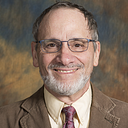Mendel Letters 121 — How I Became WOKE
May 13, 2023
Dear Mendel,
The governor of Florida is busy campaigning to stop WOKE behavior and WOKE ideas as he prepares to run for President of the United States. He pushed a Stop Woke Act (Stop Wrongs to Our Kids and Employees) through the Florida legislature that basically bans teaching and work-place training that makes white people uncomfortable because of the history of racism in the United States and the impact of racism today. The law doesn’t specifically mention anti-Semitism, but if someone complains that learning about anti-Semitism makes them “uncomfortable” because they don’t want to know the way Christians treated Jews or the way contemporary neo-Nazis in the United States blame Jews for everything they don’t like, the law probably bans learning about anti-Semitism also.
The attack on WOKE got me to thinking about how I got “woken.” Thinking back, it happened in stages, not all at once.
My first “woke” experience was during the Vietnam War when it was pretty clear, if you were willing to see, that the government was lying to the American people. There was no way that a small impoverished country on the other side of the planet was a threat to the United States or the American people. Facing a military draft that would force me to fight a war I did not believe in, I began to think more and more critically about what the United States stood for at home and around the world, attend anti-war demonstrations, and organize protests on the City College campus. Part of my “wokening” was getting arrested at an anti-draft demonstration where I was charged with obstructing pedestrian traffic (a/k/a standing on the sidewalk) after we were repeatedly attacked by police and then beaten again in the police car.
My second “woke” experience was the assassination of Martin Luther King, Jr. in April 1968. I was a college freshman and up until that point I was not really involved in civil rights actions. But I really respected King, largely because of his willingness to challenge the war in Vietnam. After he was murdered, I began to think much more about other injustices in the United States. That led me to get involved with an interracial Brooklyn community group that ran programs for young people and opposed the war in Vietnam. Because Black students at City College were increasingly forming separate organization where they could explore their own identities and history, that was one of the few interracial activist groups where participation by whites was welcomed.
In the Community Center, for the first time in my life, I had the opportunity to work with and take direction from Black and Latino adults who I respected. I guess that was my third “woke” experience. It was at the Community Center’s sleep away camp that I learned how to work with young people and be a teacher and I met the woman who would become my wife.
However, the more I was involved in the Community Center, the more I began to see problems with its approach. It was committed to the values and goals of the 1950s and 1960s civil rights movement, racial integration with a “Big I,” and too often it viewed separate Black groups as the problem, rather than white resistance and the injustices that plagued the United States. It also opposed the emerging women’s movement as separatist. A big part of the Center’s problem was that its leadership held onto beliefs that were based on idealism instead of an understanding of reality. It was one thing to believe everyone should be treated equally and to maintain it in a summer sleep away camp for kids, but there also needed to be recognition of the forces in society that blocked equal rights for women, African Americans, and ethnic minorities. Any strategy for change had to take this into account.
I think my next “woke” moment was as a high school teacher in 1981. My students, all Black and Latino, organized a citywide campaign against cuts in the school budget. They respected my opinions and let me be involved, but I had to let them take the lead, something that was not easy for me to do. What I had to accept was that the question was not who was “right,” but the ability and right of these Black and Latino young people to make decisions and learn from their successes and failures.
I had one more important “woke” challenge during the 1970s and 1980s, AIDS and the Gay Rights movement. My younger brother was gay and we had been alienated from each other since high school. We saw each other at family gatherings but rarely spoke. I had no understanding of his life, I was rejecting of it, and our relationship became even harder when he was diagnosed with HIV/AIDS. As our father, you were the one to keep whatever lines of communication open that remained.
My brother died before I could speak with him and learn from what he had struggled with as a gay man in homophobic America. I don’t know if this really counts as a “woke” moment because there was no sudden shift in my attitudes. But it was easier being related to gay colleagues at work and I helped the Community Center get a federal HIV/AIDS education grant.
The Governor of Florida probably would consider me as WOKE as you can get — a leftwing tenured University radical. But WOKE is a process, not something to be achieved, and I am still on the path to WOKENESS, a path I hope never ends.
Your son
